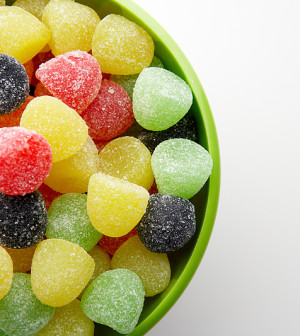- Could Your Grocery Store Meat Be Causing Recurring UTIs?
- Are You Making This Expensive Thermostat Error This Winter?
- Recognizing the Signs of Hypothyroidism
- 10 Strategies to Overcome Insomnia
- Could Artificial Sweeteners Be Aging the Brain Faster?
- Techniques for Soothing Your Nervous System
- Does the Water in Your House Smell Funny? Here’s Why
- Can a Daily Dose of Apple Cider Vinegar Actually Aid Weight Loss?
- 6 Health Beverages That Can Actually Spike Your Blood Sugar
- Treatment Options for Social Anxiety Disorder
Too Much Alcohol at Midlife Raises Stroke Risk, Study Finds


Too much alcohol in middle age can increase your stroke risk as much as high blood pressure or diabetes, a new study suggests.
People who average more than two drinks a day have a 34 percent higher risk of stroke compared to those whose daily average amounts to less than half a drink, according to findings published Jan. 29 in the journal Stroke.
Researchers also found that people who drink heavily in their 50s and 60s tend to suffer strokes earlier in life than light drinkers or non-imbibers.
“Our study showed that drinking more than two drinks per day can shorten time to stroke by about five years,” said lead author Pavla Kadlecova, a statistician at St. Anne’s University Hospital International Clinical Research Center in the Czech Republic.
The enhanced stroke risk created by heavy drinking rivals the risk posed by high blood pressure or diabetes, the researchers concluded. By age 75, however, blood pressure and diabetes became better predictors of stroke.
The study involved 11,644 middle-aged Swedish twins who were followed in an attempt to examine the effect of genetics and lifestyle factors on risk of stroke.
Researchers analyzed results from a Swedish registry of same-sex twins who answered questionnaires between 1967 and 1970. By 2010, the registry yielded 43 years of follow-up, including hospital records and cause-of-death data.
Almost 30 percent of participants had a stroke. They were categorized as light, moderate, heavy or nondrinkers based on the questionnaires, and researchers compared the risk from alcohol and health risks such as high blood pressure, diabetes and smoking.
The researchers found that for heavy drinkers, alcohol produced a high risk of stroke in late middle age, starting at age 50. By comparison, light drinkers’ or nondrinkers’ stroke risk increased gradually with age.
Among identical twins, siblings who had a stroke drank more than their siblings who hadn’t had a stroke, suggesting that midlife drinking raises stroke risks regardless of genetics and early lifestyle, the researchers said.
Midlife heavy drinkers — those in their 50s and 60s — were likely to have a stroke five years earlier in life, irrespective of genetic and lifestyle factors, the study found.
The findings are consistent with national guidelines that recommend a maximum of two drinks a day for men and one for women, said Dr. Irene Katzan, a staff neurologist and director of the Center for Outcomes Research and Evaluation at the Cleveland Clinic. That translates to a daily maximum of about 8 ounces of wine for a man and 4 ounces for a woman.
“It’s a nice study that corroborates what we’ve known about alcohol and stroke, and it corroborates the recommendations that are in the national guidelines,” Katzan said.
It’s not clear exactly how alcohol affects stroke risk, but some theories center on the fact that alcohol thins your blood. This could increase your risk of hemorrhagic stroke, in which a blood vessel breaks inside the brain, Katzan said.
“The more you drink, the more risk you have of bleeding in the brain,” she said.
At the same time, it’s also well-known that alcohol contributes to high blood pressure and can increase the chances of atrial fibrillation, two other health-related risk factors for stroke, she added.
“Who knows what combination of factors are at play in any particular person?” Katzan concluded.
People who imbibe should consider cutting back their intake if they are having two or more drinks a day on average, Katzan and Kadlecova said.
“It is okay to drink in moderation,” Katzan said. “The ideal is consuming less than two drinks per day for men, and for non-pregnant women the maximum should be no more than one drink per day.”
More information
For more on stroke risk factors, visit the U.S. Centers for Disease Control and Prevention.
Source: HealthDay
Copyright © 2026 HealthDay. All rights reserved.










